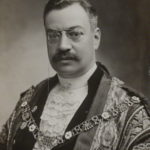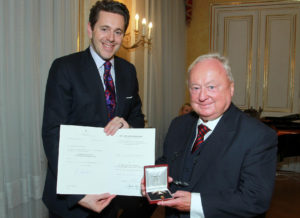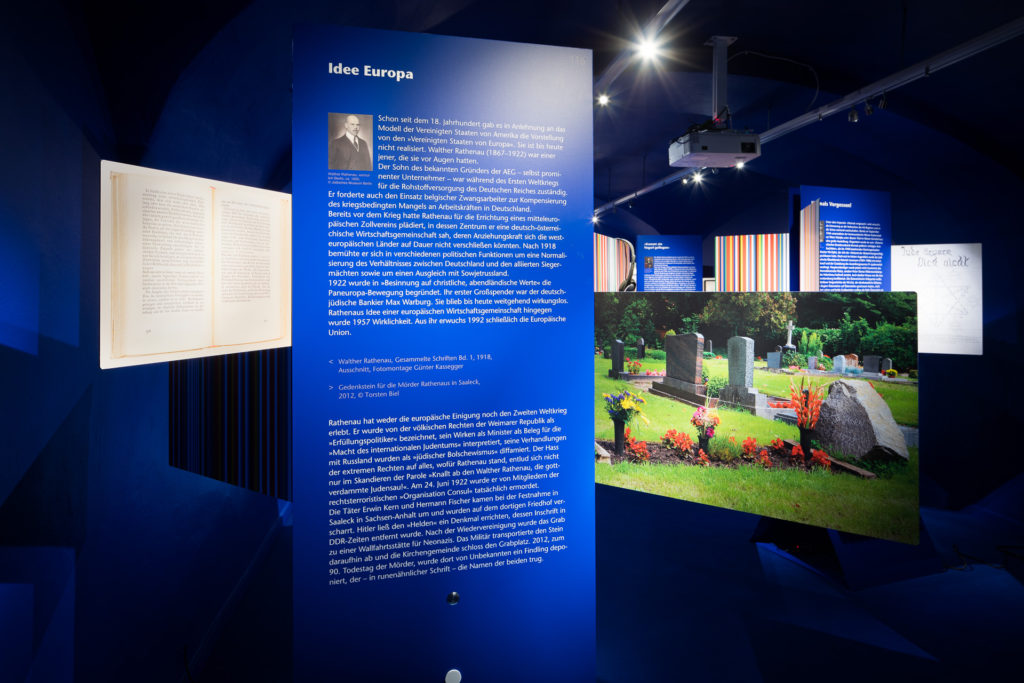European Diary, Jan. 17, 2021: The resignation of Austrian Labor Minister Christine Aschbacher came after less than a week. In early January, it was revealed that her diploma thesis at the University of Applied Sciences in Wiener Neustadt in 2006 consisted largely of plagiarism – and where she had written something herself, not infrequently of nonsense. Also her dissertation “Draft of a Leadership Style for Innovative Companies”, submitted to the Technical University of Bratislava in the subject “Mechanical Engineering” – already being part of the Austrian government in 2020 – contains, as the “plagiarism hunter” Stefan Weber ascertains with the usual software of the University of Vienna, more than 20 % copied material. And lots of real satire, which comes by itself when English quotations were translated years ago with the then rather clumsy “Google Translate” and have not been corrected since.
The university in Bratislava and its reviewers, who have so far not been conspicuous for their knowledge of German, feel quite unjustly exposed. After all, the official plagiarism software of the Slovak universities was only able to detect 1.15% plagiarism. This software hardly knows any German-language sources. Thus the Dr. Bratislava is meanwhile a winged word.
Ms. Aschbacher was of course not aware of any culpability, complained about the “prejudices” and declared that she had acted to the “best of her knowledge and belief”. And then nevertheless her resignation followed quite quickly. “Her family should not suffer…”, she said. But it is probably more likely that Chancellor Kurz had to take her out of the line of fire before even more unpleasant questions would be asked. For example, who actually brokered the deal with the Slovak faculty of “mechanical engineering” for the Austrian labor minister. And in general: questions about how Austrians from politics and business get their academic titles, and their promoters get honors from politics and business. Nobody knows who advised Ms. Aschbacher.
A few days ago, the voice of an expert well known in such circles was heard on ORF: “Univ.-Prof. Dr.h.c.. Dr.” Peter Linnert, who at the end of 2015 was awarded the Cross of Honor for Science and Art 1st Class by ÖVP State Secretary Harald Mahrer (now President of the Economic Chamber). And this in his capacity as rector of the “Goethe University Bratislava”.
The private university founded by Linnert has long been history. Just one day before the award ceremony in Vienna on December 16, 2015, it was closed by the Slovakian government – after long public discussions about glaring abuses – due to considerable “deficiencies in the study program”.

Harald Mahrer, Peter Linnert and the Cross of Honor, Photo: Willibald Haslinger
But this did not diminish the successful activities of the now honorary cross recipient in Vienna. Linnert still heads the “Hohe Warte Study Center” in Vienna, founded in 2003, and the associated “Sales Manager Academy”. The program consists of awarding academic degrees at currently four Eastern European private universities in Bratislava, Warsaw and Belgrade, which solicit customers with illustrious names and adorn themselves with “Europe”.
For €30,000, you can choose whether you want to do your doctorate at the “Pan-European University Bratislava” or at the “European University Belgrade”, in “International Management”, “Economics” or “Mass Media”, for example.
The doctorates bought in this way may not count in the academic world. But they are helpful in business and politics. The required “scientific achievements”, such as participation in a total of ten days of seminars, lectures in “scientific conferences” and publications (in the in-house “journal”), are to be completed in the “study center” Hohe Warte itself – as social occasions. And also the graduation ceremonies in the Viennese city hall are impressive. Emeritus professors in Austria act as “second reviewers” who are basically fluent in German and, according to Linnert, earn extra money with it.
Belgrade’s “European University” is privately owned by its rector, Milija Zečević, who (apart from boasting with numerous venal honorary titles) is also president of the “European Academy of Science,” which resides at the same address as Linnert’s “study center,” Geweygasse 4 in Vienna’s elegant 19th district. But for “academic celebrations” with partner organizations such as the “Albert Schweitzer International University” from Geneva (and such beautiful topics as “Global Business and Management in the Function of Peace”) or the appointment of new members, they prefer to meet at the Hotel Imperial.
The reason why it takes such complicated detours for graduates of the Hohe Warte Study Center is that, despite his efforts to attract the younger generation of politicians and entrepreneurs, Linnert has not yet succeeded in transforming his institution into a private “university for business and ethics”. This requires formal accreditation, which the relevant commission in Austria has already refused for the fifth time. To Linnert’s chagrin, it’s not just politicians and entrepreneurs who have a say in this matter.
In 2013, for example, his daughter Julia also had to submit her “communication science” dissertation to the Pan-European University in Bratislava. Second examiner: Peter Linnert. In 2018, this “dissertation” was also chased through the plagiarism program of the University of Vienna. And put all records in the shade. The text contained exactly 18 sentences that were not copied. A plagiarism score of more than 98%. Linnert’s son Michael, meanwhile employed in the Linnerts’ empire of various “Sales Management Academies,” also got his doctorate this way – which is not revoked in Bratislava even if plagiarism is proven.
Linnert is by no means the only provider on the market. One can also employ ghostwriters, or try it with a windy thesis at a “proper” Austrian university, like the Styrian ÖVP state representative (Landesrat) Christian Buchmann, whose dissertation in Graz was positively reviewed by two party colleagues in 2000, despite 30% plagiarism. At that time, of course, there was no effective software. In 2017, Buchmann had to give up his title of PhD again, but this did not harm his political career. He is currently president of the Austrian Federal Council.
Linnert’s “pan-European” title business continues to flourish. And only rarely is there any public talk about it. In 2014, for example, the Steyr ÖVP city councilor Markus Spöck acquired his doctorate in “International Management” via the “Hohe Warte” at the “European University Belgrade”. And at the same time, Christa Kranzl also acquired her doctorate in this way, having already obtained her master’s degree in “Executive Sales Management” at Hohe Warte. The former Lower Austrian state representative (responsible for education, among other things) and brief SPÖ federal state secretary (for “innovation”) under Chancellor Gusenbauer had been expelled from the SPÖ in 2011 because she had run against the SPÖ in her hometown with her own list.
As a management consultant (specializing in “subsidy consulting”), she was now active in further education for entrepreneurs.
In 2016, for example, “Dr. Christa Kranzl” taught “Government Policy and Parliamentarianism” at the “Middlesex University/KMU Akademie & Management AG” in Linz, which apparently employed other illustrious figures from the gray area of charlatanry and business. Thus, “Dr.” Hubert Dollack, mastermind of another European and non-European network selling successfully shady academic titles, also taught there.
From 2011 Dollack called himself president of the “University of Northwest-Europe” in a former abbey in Kerkrade, the Netherlands, even though this “university” was not formally recognized at all. After all, it bore the “seal of approval” of the “Universidad Azteca International Network System,” which is the distribution system for Mexican doctoral degrees. The “Universidad Azteca European Programme” operates its virtual campus in Innsbruck, where the busy title sellers even managed to enter into a brief cooperation with MedUni Innsbruck ten years ago, before the latter smelled a rat. The dean of the Aztecs, a certain “Prof. Dr. Dr.” Gerhard Berchtold, former club director of the FPÖ in the Innsbruck state parliament and chamber of commerce official (waste disposal, waste management), also represents the “Universidad Central de Nicaragua”.
Hubert Dollack, who holds a doctorate from the Technical University of Ostrava, on the other hand also headed the now defunct “Steinbeis Institute of Operations Management” in Stuttgart, the “IMC Institute for Management & Consulting” and the “UNIDI Career College”, a branch of the non-existent “University” in Kerkrade. In 2015, an obscure “Martin Buber University” (which also waited in vain for recognition) and an even more obscure “European New University,” the branch of the “International Teaching University” in Tbilisi, Georgia, also resided in the corridors of the former abbey. Their diplomas, in turn, are issued primarily by the “European University” in Belgrade.
This closes many circles. “Consul Univ.-Prof. Dr. rer. pol. Dr. habil. Dr. h.c. mult.” Peter Linnert will probably retire soon. At the age of 84, he can now look back on a long successful and sometimes less successful life.
He actually received his doctorate from the University of Hamburg in 1964, and began his career as an assistant at the Chair of Business Administration. In 1969, he moved to Vienna to the University of Economics. And then his “academic” biography is lost in obscurity for a while. It was not until the 1990s that the picture cleared up again, and soon Linnert was once more to be seen at the University of Economics in Vienna, now as a freshly minted honorary doctor of the University of Vilnius, and as the person responsible for the Service Management seminar, an advanced training program for managers – with which he set up his own business in 1996. The “Sales Manager Academy” is born. And an expensive but convenient access to the diploma of “Master of Business Administration”, delivered by the University of Staffordshire in England, the whole for 20.440,- €.
Linnert also regularly draws with his name as the author of books on management and business. As early as 1971 he published his “Clausewitz for Managers. Strategy and Tactics of Corporate Management.” A dozen other titles followed, including “Alles Event? Success through Experience Marketing,” “Greater Market Success through Total Quality Management,” or “The Financing of Ventures in the Lecture and Performance Business.” His latest book, just published in 2019, is “highly recommended” on his study center’s website: it is succinctly titled “White-Collar Crime.”
Why Linnert’s curriculum vitae contains twenty years that are so little documented can be seen from a report in the weekly magazine Der Spiegel from 1976: “Papiere von St. Pauli”. At that time, the last of Linnert’s windy deals for the time being had burst when Deutsche Bank found rather sloppily forged shares allegedly worth DM 2 million in Linnert’s depot in Frankfurt. He had tried to borrow the fake shares in his depot in order to use the money to save his company empire, which consisted mainly of air numbers. His “Vereinigte Zünder- und Kabelwerke AG” had not produced anything for a long time, but was engaged in asset transactions. In Guatemala, he planned the purchase of a large forest area for the establishment of a “free trade zone”.
There was talk of setting up a marble factory and a shipping company for the purpose of transporting the marble to Japan. His “Marketing Institute Peter Linnert and Co” established networks and distributed a “practical, up-to-date consulting letter”. With his partner Ekkehard Zahn (who was still involved in Linnert’s “Sales Management Academies” 50 years later), he organized exclusive seminars for managers or those who wanted to become managers. But then he also bought Germany’s second-largest furniture mail-order company, Steinheimer Möbel-Becker GmbH, which had to file for bankruptcy in May 1976. In search of capital, Linnert had his windy Zünder- und Kabelwerke issue new shares, which were soon no longer worth the paper they were printed on. When the fake shares in the Frankfurt depot were also exposed, Linnert was arrested in his Hamburg villa at Elbchaussee 359.
He had bought the shares in Hamburg-St. Pauli, he claimed. But by then, nobody in Germany believed anything he said anymore. In the community, Peter Linnert had long since acquired his nickname: Dr. Hocus Pocus. That’s even better than Dr. Bratislava.
https://plagiatsgutachten.com/blog/warum-erhaelt-ein-promotionsberater-das-oesterreichische-ehrenkreuz-fuer-wissenschaft-und-kunst-i-klasse/
https://www.spiegel.de/spiegel/print/d-41119562.html
https://causaschavan.wordpress.com/2016/03/11/huetchenspiele-teil-2-allgemeines-guatemala/
https://causaschavan.wordpress.com/2016/04/04/huetchenspiele-teil-3-sturm-und-drang-in-bratislava/



